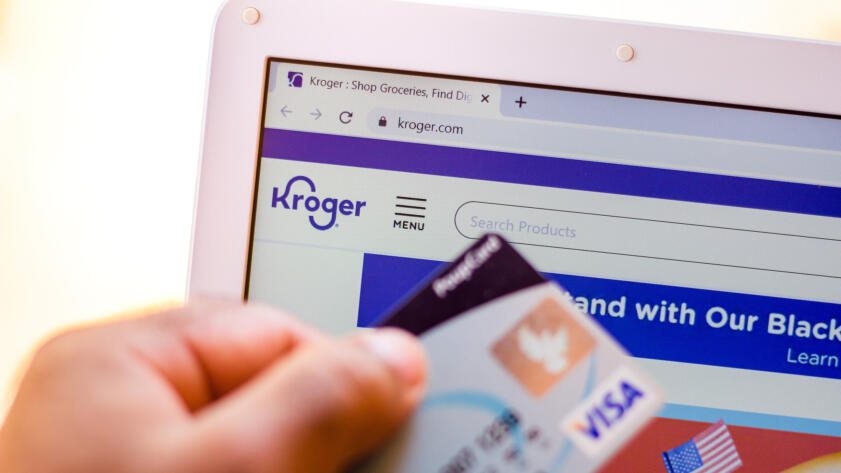|
|
 |
We’re very bullish and confident in our COPPA allegations. Meta is knowingly taking steps that harm children, and lying about it.
- Rob Bonta, California Attorney General
|
|
Welcome to Snippets—The FTC won its latest legal bout with Meta, after the tech giant tried to block proposed updates to the $5 billion settlement it made in the fallout of the Cambridge Analytica scandal.
Plus, the California Privacy Protection Agency released draft regulations around automated decision-making, an unredacted lawsuit reveals allegations that Meta encouraged underage users on its platforms, two authors spied on Mar-a-Lago from their couch, and more.
|
|
|
|
|
The FTC wins this round
|
 |
|
Shuran Huang/The Washington Post
|
A District Court judge dismissed Meta’s attempt to block the Federal Trade Commission’s (FTC) proposed restrictions on monetizing data from teens and children—clearing the way for the FTC to cap Meta's revenue users under the age of 18.
|
- In May, the FTC accused Meta of misleading parents about privacy controls on Messenger Kids—proposing changes to the $5 billion settlement it made with Meta following the Cambridge Analytica scandal as a result.
- Meta dismissed the FTC’s complaint as a political stunt and filed a motion for the court to take over.
- District Court Judge Timothy Kelly dismissed the motion, ruling that the dispute was outside the court’s jurisdiction.
- The move was welcomed by children’s safety groups, with Josh Golin, the executive director of Fairplay, urging the FTC to use Meta’s case as a “road map” for regulating other tech giants.
|
|
|
|
|
|
|
Global AI Regulation: A Closer Look at the US, EU, and China
|
Though headlines make AI seem like an unruly, unregulated Wild West, there are actually several laws in force today that directly affect the use and creation of AI.
This guide explores key AI laws in the United States, the European Union, and China—looking at laws already on the books, as well as those coming down the pipeline.
|
|
|
|
|
|
|
|
CPPA releases draft regulations for AI
|
 |
|
Yuichiro Chino / Getty Images
|
The California Privacy Protection Agency (CPPA) has released a first draft of regulations to control personal data use in the development of AI. Drawing inspiration from the GDPR, the draft regulations outline several new requirements around automated decision-making technology.
|
- The requirements include allowing consumers to opt-out, providing pre-use notice requirements, and giving consumers insight into how their data is being used in AI development.
- Opt-out consent will be exempted in cases where data collection is required for the purposes of security, safety, and fraud prevention.
- Giving consumers the right to opt out could prove to be a major hindrance to companies that rely on tracking and profiling to serve users targeted ads.
- If passed into law, the regulations could become the benchmark for AI regulation—given the lack of federal privacy regulation in the US.
|
|
|
|
|
|
|
|
Meta turned a blind eye to underage users, according to unredacted lawsuit
|
 |
|
TechCrunch
|
An unredacted copy of a federal lawsuit filed against Meta has revealed allegations that the company is knowingly keeping children under the age of 13 on Instagram and Facebook, and has actively worked to expand that user base in the past.
|
- Despite the company’s public stance that users under 13 aren’t welcome on Instagram, internal documents containing market penetration data show a significant percentage of active users from the demographic.
- One of the presentations explicitly states a goal to “grow [Monthly Active People], [Daily Active People] and time spent among under-13 kids.”
- Though the documents proving Meta’s knowledge of under 13 users are from years prior, California Attorney General Rob Bonta said: “We are not confident that they have changed their ways.”
|
|
|
|
|
|
|
|
- Meta’s ad-free subscription tier was challenged in Austria.
- Recapping a bustling year for privacy in California.
- We exchanged our privacy for convenience, but at what cost?
- All you need to know about Apple’s controversial NameDrop.
- How can action recognition become more privacy-compliant?
|
|
|
|
|
|
Kroger faces lawsuits for sharing personal data
|
 |
|
Rafael Henrique/SOPA Images/LightRocket via Getty Images
|
Retail and grocery chain Kroger is facing two federal class-action lawsuits for allegedly sharing personal and health data with Meta.
|
- The lawsuits claim Kroger “planted a bug,” referring to the Meta Pixel, on its website to track purchases from its online pharmacy, revealing information about patients’ medical conditions.
- The lawsuits follow a February report that revealed the company was using Meta Pixels to collect data on sensitive product purchases, such as pregnancy tests and contraceptives.
- The suits claim that Kroger’s use of tracking pixels violates the Electronic Communications Privacy Act, the Health Insurance Portability and Accountability Act, and Ohio state laws.
|
|
|
|
|
|
|
|
Two authors spied on Trump’s resort from their couch
|
 |
|
MARTA LAVANDIER/AP
|
In the process of researching a new book, “The Secret Life of Data,” two authors gained access to sensitive information on Mar-a-Lago, the Palm Beach resort owned by former President Donald Trump. All it took was registering and a click of a button.
|
- The authors registered on Near, a legal and free-to-use data broker website. Within minutes, they had a report detailing age, income, ethnicity, education, and occupation of thousands of resort visitors over the last year.
- Though the data is anonymized, the authors were able to deduce the identity for one Nigerian visitor simply using Google and social media.
- Near’s clients are typically retail businesses who use the data to target ads, but the authors’ discovery highlights the potential dangers when personal data is collated and sold for cheap.
|
|
|
|
|
|
|
Transcend launches in AWS Marketplace to simplify data privacy and AI governance
|
Transcend is now available in the AWS Marketplace, the digital catalog that makes it easy for companies to find, test, buy and deploy the third-party software and services they need.
Through the AWS Marketplace, AWS customers can now test, buy and deploy Transcend to automate the discovery and governance of personal data throughout their organization—across any system.
|
|
|
|
|
|
|
|
|
Snippets is delivered to your inbox every Thursday morning by Transcend. We're the platform that helps companies put privacy on autopilot by making it easy to encode privacy across an entire tech stack. Learn more.
|
|
|
|
You received this email because you subscribed to Snippets. Did someone forward this email to you? Head over to Transcend to get your very own free subscription! Curated in San Francisco by Transcend.
|
|
|
|
|
|